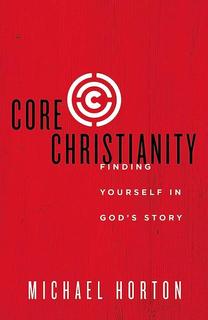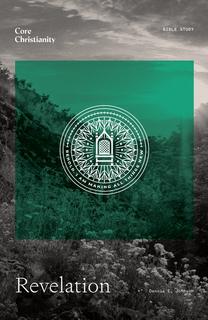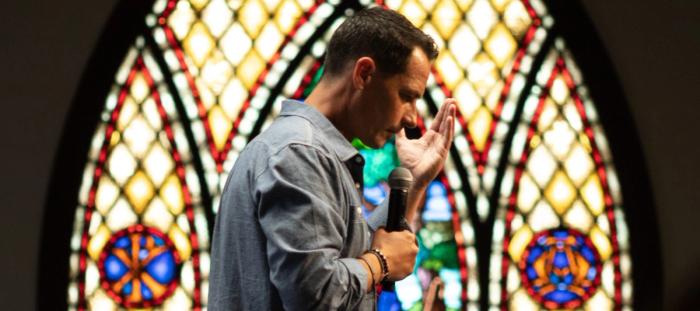
That man is blest who, fearing God,
from sin restrains his feet,
who will not stand with wicked men,
who shuns the scorners’ seat.
That man is nourished like a tree
set by the river’s side;
its leaf is green, its fruit is sure,
and thus his works abide.
The Lord will guard the righteous well,
their way to him is known;
the way of sinners, far from God,
shall surely be o’erthrown.
Yea, blest is he who makes God’s law
his portion and delight,
and meditates upon that law
with gladness day and night.
The wicked, like the driven chaff,
are swept from off the land;
they shall not gather with the just,
nor in the judgment stand.
“I just want my kid to fit in.” How many times have you heard this sentiment from a parent? Maybe you’ve even said something like this before. I think most of us moms and dads want our children to make friends. Some of us dearly hope our child isn’t ostracized by his peers, or heaven forbid, gets labeled “weird” by her class. But in today’s society, what’s “weird” may not be a bad thing. We live in a world where sin seems normal, and holiness is most definitely weird. What was once deemed unthinkable, even 50 years ago, is now glorified. Tolerance does not simply mean tolerance anymore; it means unquestioning celebration. Our children are growing up in a world that has lost its mind. And if our children are professing believers, the world they live in already hates them. As much as we parents feel the mocking jeers from our culture for raising children in the fear and admonition of the Lord, our children are going to experience society’s repulsion in a way that we never have. How are we to prepare them for this? Are they ready to exponentially not fit in?
One of my boys’ favorite songs is this paraphrase of Psalm 1. They memorized this psalm at the tender ages of four and six, but being able to sing it with their church family always excites them; they usually look up at me and grin as if to say, “I know this one!” Some of the language is a bit lofty for elementary ages, so parents, go verse by verse in simplified explanation as they learn the words. Some concepts will be lost on them, but that’s ok. How many things do we teach our children to do before they understand exactly why they’re doing it? Children memorize scripture with astonishing ease, so fill their little heads with the everlasting words of life now. These seeds, which will have been deeply rooted in their minds since youth, will later begin to sprout fruit in their hearts as they age and mull over these truths in greater understanding. “Train up a child in the way he should go; even when he is old he will not depart from it.” (Prov. 22:6)
When you open up the Bible to Psalms, know that these 150 compositions are arranged deliberately. Psalm 1 and Psalm 2 are placed at the front of the book because they summarize the main themes of the entire Psalter. Psalm 1 gives us instructions regarding how to live as God’s child, and it shows us how delighting in God’s law is precisely what the blessed life looks like. And then Psalm 2 is about God’s Messiah. The nations may rage and wickedness abound, but it’s all in vain, for the Redeemer is coming, and he shall reign victorious for ever and ever. You can see why, especially Psalm 1, is so vital to us as families living and rearing children in a wicked age. Looking at the first verse, the psalmist begins by telling us what the blessed man is not. “That man is blest who, fearing God, from sin restrains his feet, who will not stand with wicked men, who shuns the scorners’ seat.” This man of God does not walk in the company of the unrighteous. He is not intrigued by what they have to offer. He does not take delight in their companionship. Notice the progression of what merely flirting with sin will do to you: at first you tag along, observing from the outskirts, until you have been drawn in and are standing in solidarity with the wicked. And if that is not enough, you join in the mocking, the scoffing, the cynical scorn of righteousness that this fallen world takes such pleasure in. It brings to mind our modern-day sagas of once former Christians going through the “deconstruction” of their faith; how they slowly, bit by bit, discard all truth for a few fleeting pleasures, for the praise of men, how they now boast in their new-found enlightenment and savagely eviscerate the “backwards” Christian homes and churches they were brought up in. The blessed man understands how dangerous sin can be, and he stays far from it.
“Yea, blest is he who makes God’s law his portion and delight, who meditates upon that law with gladness day and night.” Now having been warned about what the blessed man is not, we are told what he is. The use of the Hebrew word, Torah, is an Old Testament way of saying all the Word of God and all the ways of God. The blessed man is not infatuated with mere rules; his affections have been captured by the whole counsel of God. And this is not an infrequent exercise which he partakes in; he meditates upon the word of the Lord day and night. The law of God comes to this man’s mind as easily as breathing comes to his chest. Parents: do you love God’s law? Do you find joy in his promises? Are the words of the Lord sweet to your taste? True, godly affection does not come naturally. “Prone to wander, Lord, I feel it, prone to leave the God I love.” Relationships flourish when appropriate time and energy are lavished upon them. Spend time, unallocated leisure time even, in God’s word. Practice delighting in it until you do. This is not clinical, this is practical. Model for your children what time truly well-spent looks like.
Verse three is my favorite. “That man is nourished like a tree set by the river’s side; its leaf is green, its fruit is sure, and thus his works abide.” When I consider my children, the three running around my house in joyful chaos and the one kicking the living daylights out of me from within—my sweet little olive shoots—this is what I desire for them. Read the verse that these lyrics are paraphrasing: “He is like a tree planted by streams of water that yields its fruit in its season, and its leaf does not wither. In all that he does, he prospers.” (Ps. 1:3) This is what my soul craves for my children: that they would be firmly planted, exceptionally nourished, that their lives would yield much spiritual fruit, that their faith and joy would not wither, and that they would prosper. And prosper not in the way that the world would consider prosperous, but what the psalmist means by prosper; that in all they do they would spiritually flourish. The righteous will always prosper over the wicked, even when everything seems to say otherwise. The fourth verse of this psalm reminds us of this.
“The wicked, like the driven chaff, are swept from off the land; they will not gather with the just, nor in the judgement stand.” The wicked will eventually be swept away, but the righteous will eternally prosper. Eighty years of “prosperity” on this earth pales in comparison to an everlasting treasure that is laid up in heaven for the sons and daughters of God. It is an irrevocable inheritance. “In my Father’s house are many rooms. If it were not so, would I have told you that I go to prepare a place for you? And if I go and prepare a place for you, I will come again and will take you to myself, that where I am you may be also” (John 14:2–3).
“The Lord will guard the righteous well, their way to him is known.” Moms and dads, if you’re ever at a loss as to how to pray for your children, pray that they would grow in righteousness, and that the Lord would guard them well. Right after my children were born, my husband cradled their soft, wriggly little bodies in his arms and sang this psalm over them. Amidst the chaotic sounds of hospital monitors and scurrying nurses, he brought something sacred into that mess of a delivery room. The first few minutes of their little lives were spent listening to their daddy softly singing these marvelous promises of our Lord.
And these words that I command you today shall be on your heart. You shall teach them diligently to your children, and shall talk of them when you sit in your house, and when you walk by the way, and when you lie down, and when you rise. You shall bind them as a sign on your hand, and they shall be as frontlets between your eyes. You shall write them on the doorposts of your house and on your gates.
(Deut. 6:6–9)
Let us pray that our children would know, hunger, and thirst for the Lord, for the Good Shepherd knows his sheep, and his sheep know his voice.
We should not compare our children to their peers or even to other Christians. We should instead teach our children to compare themselves to the blessed man of Psalm 1. This psalm points us to the only sinless, Blessed Man who kept all of these statutes perfectly. What better instructions for living the Christian life are there than those which call us to imitate Jesus? Who cares if the world thinks you’re weird? Who cares if our kids don’t exactly fit in with the popular crowd? The world rejected our Savior, and the world will reject us and our children as well. But this is not a cause for despair, for our joy is not rooted here, but in the everlasting words of life. “Yea, blest is he who makes God’s law his portion and delight.”






















